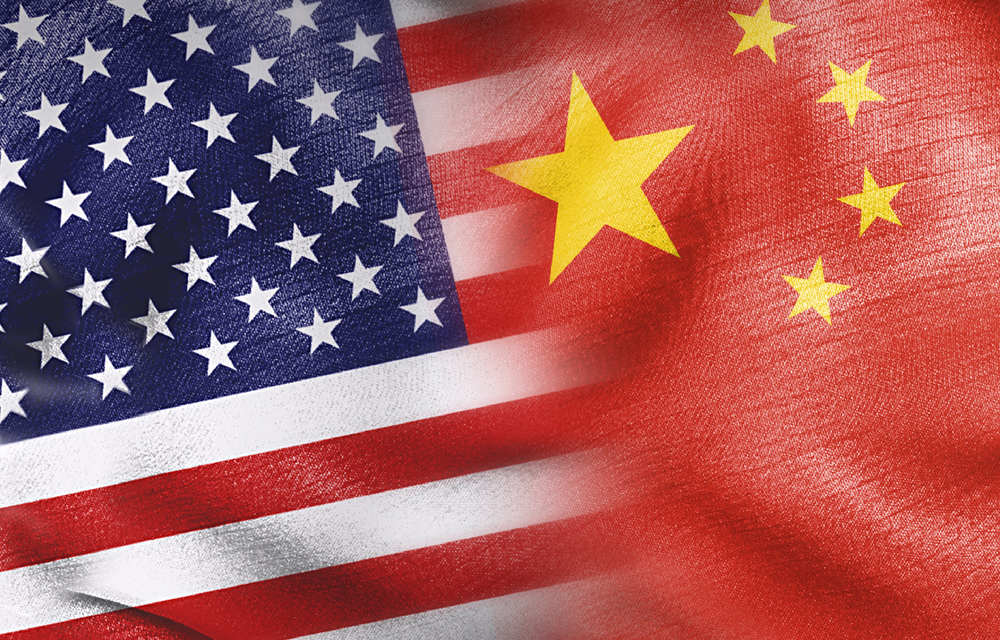The EU’s Evolving China Sanctions Strategy

Published by The Lawfare Institute
in Cooperation With

As China ramps up its support for Russia’s ongoing military campaign against Ukraine, the EU has emboldened its sanctions targeting Beijing. In late February, the EU sanctioned companies in mainland China for supporting Russia’s invasion of Ukraine for the first time—blacklisting four entities for supplying critical dual-use items to Russia. The EU’s 14th sanctions package against Russia—adopted by the EU on June 24—included an additional six mainland Chinese companies “directly supporting Russia’s military and industrial complex in its war of aggression against Ukraine.”
This round of sanctions comes only a year after the EU first sanctioned companies in Hong Kong when Brussels chose not to sanction mainland Chinese companies. The 14th package includes another 13 Hong Kong companies, but it is the six sanctioned mainland Chinese companies that shed additional light on how the EU’s sanctions regime is evolving at a time when China is also pursuing a more strategic approach to sanctions—having taken steps in recent years to formalize its own independent sanctions regime. This shift in EU strategy, coupled with Beijing’s significant criticism of the EU’s February decision, suggests a new dawn of economic tension is arriving between two global powers, potentially disrupting the existing currents of international trade.
Are Europeans Ready to Play Hardball?
The EU’s decision to sanction 10 mainland Chinese companies this year is a noteworthy shift in approach compared to its 11th and 12th sanctions packages from June and December 2023. A leaked draft of the former included two mainland Chinese companies that were ultimately absent in the final approved package; the December package, as a draft and in its approved form, omitted Chinese companies entirely. Although Brussels is no stranger to wielding sanctions, this decision to take on the world’s second largest economy suggests the beginnings of a sanctions strategy more closely resembling that of Washington.
The U.S. threat to “decouple” from China first emerged when former President Trump initiated the ongoing China-U.S. trade war, with Washington implementing tariffs and other trade barriers directed at Beijing over alleged intellectual property theft and unfair trade practices, a strategy continued under Biden. To date, however, only a partial decoupling has materialized, mainly affecting the advanced technologies sector. Most recently, the U.S. has threatened to tighten controls on Chinese access to cutting-edge semiconductor technologies—as the U.S. seeks to reorient its supply chains away from China.
This intentional distancing of the American economy from China’s reflects Washington’s increasing willingness to curb Chinese competition. The EU, in contrast, has historically been less willing to distance itself from China. This reticence is apparent in Europe’s somewhat slow eviction of Huawei, despite significant pressure from the United States. European states are now beginning to wake up to the national security threat posed by Chinese communications technology, albeit at a slower pace than the U.S.
Although the EU has so far tempered its criticism of China, it has cautiously entertained its own decoupling narrative vis-a-vis Beijing—with its officials preferring the more moderate term, “de-risking.” In March 2023, European Commission President Ursula Von der Leyen emphasized the EU’s desire to strengthen supply chain resilience and trade diversification as part of an economic risk management strategy, in her first speech clarifying this recalibrated approach to China. For now, Brussels seems content letting the U.S. lead when taking more aggressive steps with respect to Chinese economic competition. The U.S.’s announcement on June 12 of its further expansion of potential sanctions against foreign financial institutions supporting Russia’s war effort, for example, listed four financial institutions located in China. Although the EU has yet to target Chinese financial institutions with Russia-related sanctions, this move by the U.S. may give the EU an opportunity to follow suit and demonstrate its willingness to continue to target China without leading the charge.
The EU’s decision to sanction Chinese entities for their involvement in the invasion of Ukraine indicates an evolution in its de-risking approach that appears to trend toward the U.S.’s willingness to leverage sanctions as a deterrent strategy, but with critical differences in scope and scale. Washington has wielded far more sweeping sanctions as weapons against China, while the EU has so far sanctioned only 10 Chinese companies supplying Russia’s defense industry. Because unanimity is required among all member states to adopt EU sanctions, any disagreement limits the scope of sanctions packages, leading to fewer designations—especially when targeting more politically sensitive entities, such as Chinese companies. Therefore, while EU sanctions against China still hurt, they are likely to remain less far-reaching than those imposed by the United States.
China’s Evolving Relationship With Sanctions
China’s immediate response to the EU’s sanctions in February was swift, labeling them “illegal and baseless.” A Chinese Foreign Ministry spokesperson went as far as saying that China does not consider external actors when pursuing bilateral trade relationships and warned that it will “take necessary measures to resolutely safeguard the legitimate interests of Chinese companies.” Still, China has yet to impose counter-sanctions in response to the 13th or 14th packages (although the most recent package was published only Monday), as it did against EU entities in 2021 in response to the EU sanctioning Chinese entities over human rights abuse allegations.
However, this does not preclude future retaliatory actions. China may be considering measures with a broader deterrence value, as many European states remain dependent on Chinese exports. Despite China’s relatively late entry into the emerging “global sanctions race,” Beijing has long applied more informal measures, maintaining some plausible deniability. More recently, though, China has come to increasingly view sanctions as an affirmative policy instrument with an independent rationale under President Xi Jinping.
Indeed, China’s sanctions policy appears to be at a crossroads, torn between its previous preference for informal action and its development of a formalized legal framework. Since 2018, China has enacted at least nine legislative provisions on sanctions—including an overarching sanctions and retaliatory regime under the Anti-Foreign Sanctions Law. The Chinese leadership appears to be aware that sanctions can help to confer China great power status in the minds of both domestic constituents and the international community, commensurate with its reputation as a global economic giant. As China finds itself increasingly locking horns with Western states, it may expand the scope and magnitude of its sanctions to focus more centrally on security issues; indeed, Beijing recently demonstrated this focus through a new legislative framework to target U.S. aerospace firms over Taiwan.
Sanctions as a Soapbox of Great Power Rivalry
While EU sanctions against China for supporting Russia’s invasion are, at present, unlikely to disrupt the global economy, a retaliation from China could have more meaningful international ramifications. One possibility is that Beijing could manipulate the yuan exchange rate to cause chaos for international markets, as it did in response to the Trump administration’s August 2019 tariffs. Beijing may be prepared to respond to EU sanctions in a similar tit-for-tat fashion; it indicated this willingness for retribution this month in response to the announcement of EU tariffs on Chinese electric vehicles. However, China’s response might hinge on whether the EU continues to target relatively few Chinese companies. If China determines that EU sanctions will have no significant impact on its economy or international standing, these sanctions could fly below Beijing’s threshold for retaliation.
For the impact of Beijing’s sanctions to mirror those of Washington’s, the renminbi would need to gain ground as a global reserve currency (currently, it accounts for only approximately 2 percent of international transactions). This appears unlikely, not least because of China’s resistance to loosening capital controls. Additionally, a recent slew of slowdowns in economic growth, coupled with recent population decline, have put the brakes on China’s global economic rise.
Given the sharpening of strategic competition and growing instability around several flashpoints—including Russia’s invasion of Ukraine, renewed conflict in the Middle East, and saber rattling in the South China Sea—the EU must prepare for the potential of a more economically combative relationship with China. While this should not deter the EU from targeting a wider array of entities facilitating Russia’s illegal invasion of Ukraine, an expanded purview for sanctions designation comes with the risk that repercussions will spill into previously more compartmentalized trade relationships.
It is too soon to conclude that the EU’s recent sanctions strategy shift represents a sea change in the global sanctions landscape. What is clear, though, is that sanctions as tools of statecraft are no longer the sole preserve of the U.S., and increased sanctions use by a wider set of actors may further blur boundaries between issues that have traditionally remained at least somewhat separated—including trade disputes, foreign policy disagreements, and domestic pressures. As sanctions expand to encompass these wider policy areas, they may increasingly intersect with more sensitive issues—such as national security capabilities and critical infrastructure. The EU and China should remain cognizant of these potential ramifications of sanctions and ensure that strategies avoid, when possible, unintentionally provoking escalation.
As the EU shows signs of a more Americanesque sanctions strategy and China sides more closely with Russia and North Korea, the global geopolitical realignment between West and East that particularly emerged after the 2014 annexation of Crimea is increasingly manifesting in the economic realm. Without the careful calibration of sanctions strategies, this could chart a course into the murky waters of siloed global trading relationships defined by weaponized interdependence, slowing global economic growth and dimming any near-term prospects for renewed international cooperation.





